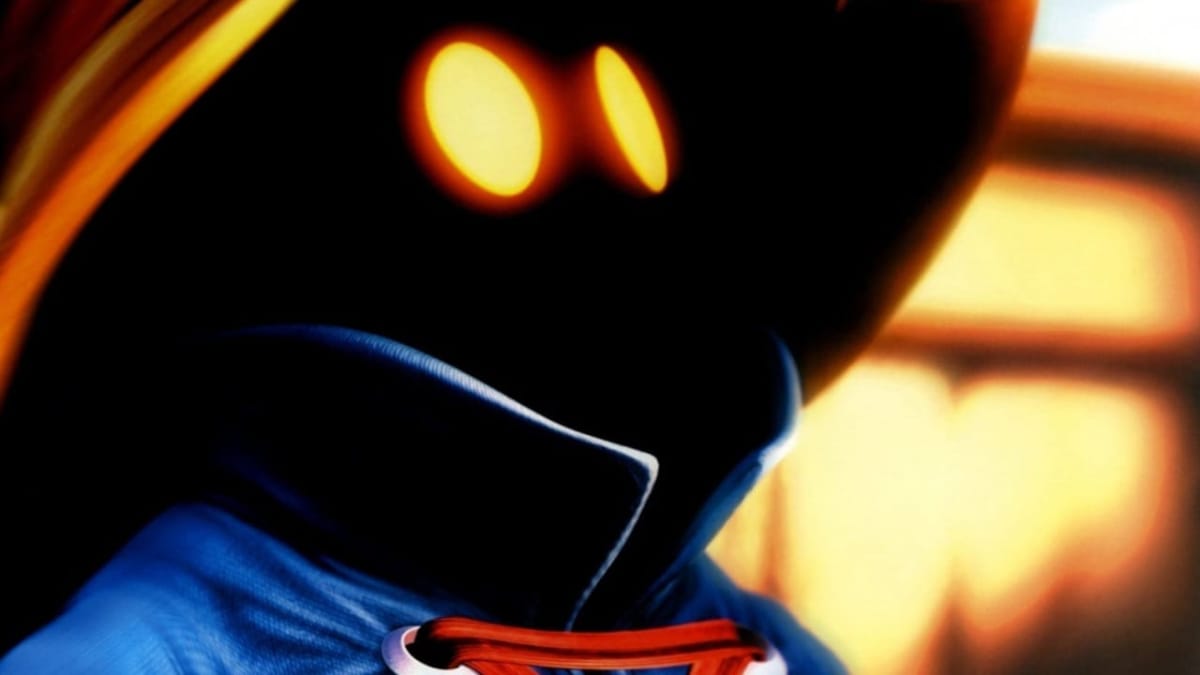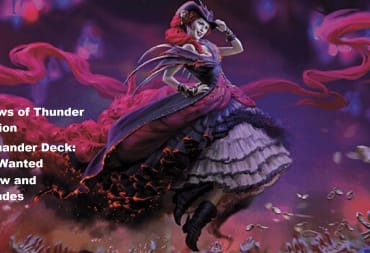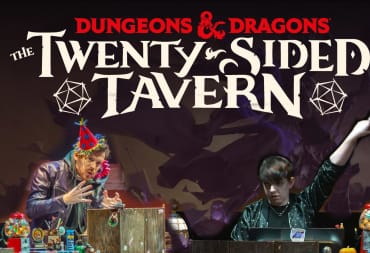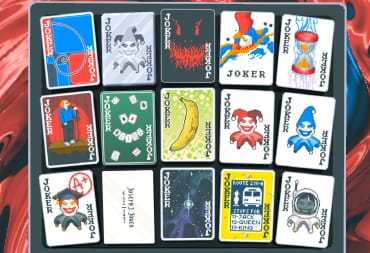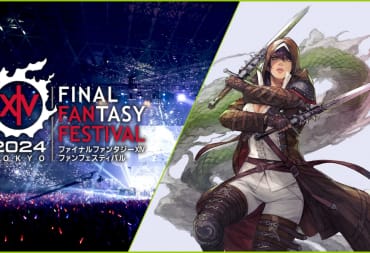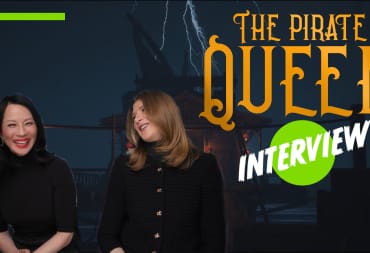We often go on a journey of excitement with larger-than-life characters in video games. The simple fantasy of defeating a great evil, overcoming death-defying odds, and enjoying the self-fulfillment of our own desires. Games have the power to be powerful, but some of the most impactful games provide another ingredient into the mix: heart.
That human element is always present, especially in games that dive into narratives. We often forget that each cliché we encounter—the noble sacrifice, the crisis of faith, the forbidden romance—does work on a fundamental level of tugging at our heartstrings. Arguably, the scenario with the most impact is finding a character who learns their worth before death. It is a classic narrative tool, the bumbling hero who matures over time to become brave and dependable, often through some sort of sacrifice.
One fascinating example of this is a fan-favorite character from the Final Fantasy series, Vivi Orunitia. Vivi’s character follows one of the most fascinating story arcs in Final Fantasy IX, showcasing the measure of one’s life throughout a hundred-hour experience. Vivi is symbolic in his representation of one of the core themes of Final Fantasy IX: what life is worth before death.
Vivi was always striking because of the classic “black mage” archetype he portrays. Clad in the jaunty wizard’s hat and faceless despite his glowing eyes, the black mage character is an exceptional design from the Final Fantasy series, rivaling the Chocobo and Moogle for iconic imagery.
Vivi helps provide the design purpose and personality. Sort of a child at heart, he is a young black mage who really has no place in the world, as far as he knows. Afraid to use his powers at first out of fear of hurting others, combined with his innocent naïveté coupled with his bumbling nature, Vivi lacked self-confidence for the first half of Final Fantasy IX.
His role, of course, is accidental in the story, being swept up in a kidnapping plot against the Princess Garnet of Alexandria by the Tantalus Theater Troupe. During a play the troupe performed (the one which Vivi snuck into with a street rat named Puck) he would eventually use his magic for the first time in public, setting fire to Princess Garnet’s cloak and causing the troupe to flee the scene with Vivi onboard. Their ship crashes into an evil forest, where Vivi joins Zidane Tribal, one of the thieves of the theater troupe, and Adelbert Steiner, a Knight of Pluto and protector of Princess Garnet, to rescue the lost princess in the forest.
The entire setup of Final Fantasy IX is purposefully a throwback to cliché, and each character in the game effectively serves as a playful archetype of their tropes. Vivi, is at first hesitant to help the group, only attacking enemies who attack him with his powers. Despite the respect Steiner gives him and the friendliness nature of Zidane, Vivi distances himself from the group, often going on alone to explore his surroundings. After rescuing Garnet from the evil forest, the group goes on the run from Alexandria’s soldiers, until reaching the village of Dali, where Vivi is mistaken for a “lost” black mage and captured.
See, in the world of Final Fantasy IX, black mages are not humans but artificial constructs, mass-produced beings to be used as shock troops for Queen Brahne, the queen of Alexandria. By design, these black mages are made to be obedient, living dolls without a will of their own, but what sets Vivi apart from them is that he is a black mage who has “become aware.” He has no memory of his birth to confirm this; his first true memory was six months before the main game began, in the Qu marsh. Other black mages in the game have similar stories, each of them coinciding with their awakening.
Vivi, being mistaken for this lost black mage, later finds more of his kind but is unable to communicate with them. Once discovered by the rest of the party, they steal the cargo airship to escape the clutches of a maniacal mage known as the Black Waltz No.3, a custom-made black mage of immense power. The Black Waltz attacks the ship, destroying the black mages who protected Vivi without a qualm, and constantly pursues them until Vivi retaliates, fighting back with his magic after witnessing the death of those mages.
This entire scene shifts Vivi’s character, not just in giving him confidence in his abilities, but also in making him question what is core to his being: "What am I?" Does he exist as a person, or does he have no real life?
This is a question we have seen in many RPGs before, such as the notion of a “soul” found in Mass Effect’s Legion. To answer this question, Vivi embarks on a personal quest to find out what makes him alive. Of course, the irony is that Vivi knows the answer already, at least subconsciously. It becomes a complex mission where Vivi explores what it means to be a black mage, and why he is how he is. Most of these questions are discussed when Vivi reaches the Black Mage Village for the first time.
It is here Vivi learns more about his kind. In talking with Black Mage No.288, Vivi learns that his “awakening” has no real answer to it. It just happens at random chance, like all the other awakened mages he finds. He also learns that for some reason, the black mages “stop” after a year or so, a thinly veiled reference to death. Because the mages in the village are distant and, like Vivi, naïve about the world around them, they don’t know the significance of this “stopping” and what it truly means, yet curiously they honor it through burial and eulogize these mages in a graveyard. Black Mage No. 288 offers perhaps the most important piece of wisdom on this phenomenon, this time to the character of Mikoto late in the game on what this means to them:
“…You’re right, but I don’t think we build cemeteries for the dead. Sure, it may seem pointless to you, but… How can I describe it? It’s so that we can think like this: ‘We’ll never forget you. We’ll remember you every time we stand at your grave. And we won’t let the fear of death, which each of us knows, stop us from living our lives. …Because my friends will remember me when I’m here.’”
- Black Mage No. 288
Vivi, like the other black mages, is at first confused by this idea of "stopping." It is important to note the way he questions this notion of death; he is a young character, in the body of a nine-year-old who has been "alive" for six months so far. This adds another dynamic to Vivi, as he is essentially a child learning about the consequences of death. His curiosity and growing courage still shine through, with Black Mage Noo 2.88 guiding him to face his fears.
This recalls other examples of children confronting death in media. Most famously, the children’s television show Sesame Street aired a critically acclaimed segment in the 1980s over the death of a primary character, Mr. Hooper. In it, the adults on Sesame Street confront the childlike Big Bird, who comes to terms with Mr. Hooper’s death, realizing that it is the memories, the friendship, and the care that keeps him alive.
Vivi follows a similar path, especially when he returns to the Black Mage Village later in the game, finding it abandoned except for No. 288 and the Chocobo caregivers. No. 288 explains that the villain Kuja has promised the other black mages that he can prevent them from "stopping," using that fear of death to trick them into joining his cause. Vivi, furious about this, rallies his friends to stop Kuja, knowing that he is promising the impossible while No. 288 remarks how he wishes the others were as strong as Vivi.
Vivi finds solace in the fact that caring for his friends made him human. Working with the party to stop their pursuers, caring for those who were killed or destroyed by the forces of evil, and sacrificing himself at times for the group; this is the measure that makes Vivi realize that he is friends with Zidane, Steiner, Garnet and the rest of the party that forms in Final Fantasy IX. In many ways, it is this bond that gives Vivi the confidence in himself to not fear death, just as seeing the destruction of the black mages on the airship gave him the confidence to fight back. He learns that being alive is about choosing what to do with your life, an important lesson that Vivi is emblematic of.
This is also in contrast to the villain Kuja, himself a narcissistic, egotistical sorcerer who not only fears his mortality but attempts to punish the world for it. Technically a construct known as a Genome, a race of beings designed for one of the main antagonists of Final Fantasy IX, Garland. Unlike Vivi, Kuja was flawed from the start, harboring a similar child-like demeanor masked by pseudo-aristocratic mannerisms. Kuja represents what Vivi could be: conceited, self-absorbed, and vengeful of what life is. Mortality scares Kuja, and in turn, he would rather destroy the world than let it live on without him.
Though recycled from other, more notable villains in Final Fantasy, the overall theme is still the same: the measure of what your life means. Though Kuja’s main rival is another Genome in Zidane, Zidane’s carefree, humble attitude gives credence to his values. His quest to learn who he is mirrors Vivi’s but is less tragic because, for Zidane, the question doesn’t matter, it was answered long ago. Even in his final moments, Kuja comes to terms with this, and even regrets his part in attempting to destroy the world of Gaia, learning too late what the measure of his life was.
Final Fantasy IX was designed to be a throwback to the older games, a somewhat comedic look at the history of Final Fantasy, complete with in-jokes and referential humor that made it a more lighthearted tone than the previously drama-heavy installments. Yet underneath this is a deeper meaning, a yearning to look back at the worth of the franchise, where it was, and where it can go. So, in many ways, this idea of life and death, the worth of individuals, and the struggle to show that nothing is futile become core themes that are symbolic of Final Fantasy the franchise at the point of its release.
Vivi becomes symbolic in showcasing the heart of these issues, the emotional core that keeps players engaged in the fundamental themes of the narrative. Seeing him lament over his eventual death, seeing him proclaim boldly that he will stop the world from ending, and seeing him react to death around him, gives the player a chance to see the effects of these themes in a human element. Zidane would see his mortality as a gift. Kuja viewed it as a curse that no one deserved. For Vivi, it was a chance to measure his life and decide who he was.
For Vivi though, the journey showcases his mark on the world that he would leave behind. While it is never said in the ending of Final Fantasy IX, it is heavily implied that Vivi died before the game’s epilogue. A lot of evidence points to this: his absence in the final scenes, and his “children” seen in the epilogue take his place, implying that Vivi somehow left a legacy behind that is physical and representative of him in the world. Finally, the narration that occurs during the epilogue is supposed to be Vivi speaking, with the Japanese version of the game adopting Vivi’s speech patterns specifically.
Even with his fate being what we would expect, Vivi’s life, though short, was full, achieving a life that many would trade to have. He is a powerful example of showcasing how to grow with a character, gradually showing his hidden strength through his courage and convictions as they evolve throughout the game. Simply put, Vivi lives his life on his terms, and coupled with the experiences he had with his friends, becomes the heart of a narrative focused on the age-old story of life and death.
This post was originally published in 2019 as a part of our Character Select series. It's been republished to have better formatting.
Have a tip, or want to point out something we missed? Leave a Comment or e-mail us at tips@techraptor.net
